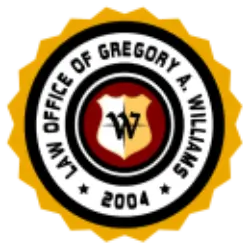
Under Washington Law Against Discrimination (WLAD), RCW 49.60, what is statutorily protected activity when pursuing a claim of unlawful retaliation? Here’s my point of view.
(IMPORTANT: This article is for informational purposes only and is based upon my point of view. Due to the rapidly changing nature of the law, we make no warranty or guarantee concerning the accuracy or reliability of the content in this article. No content on this site, regardless of date, should ever be used as a substitute for direct legal advice from your attorney. Please review our Disclaimer|Terms of Use|Privacy Policy before proceeding.)
THE PRIMA FACIE CASE
“To establish a prima facie case* of retaliation [using the McDonnell Douglas ‘evidentiary burden-shifting’ framework*] an employee must show three things:
(1) the employee took a statutorily protected action,
(2) the employee suffered an adverse employment action, and
(3) a causal link between the employee’s protected activity and the adverse employment action.
Cornwell v. Microsoft Corp., 192 Wn.2d 403, 411, 430 P.3d 229 (2018) (internal citations omitted) (emphasis, paragraphs, and hyperlinks added).
*NOTE: The link will take the reader to our Williams Law Group Blog – an external website.
ELEMENT #1 — STATUTORILY PROTECTED ACTIVITY
The first element of the prima facie case requires plaintiffs to establish that they “engaged in a statutorily protected activity.” The meaning of this requirement can be found under the anti-retaliation section of the WLAD statute, as follows:
RCW 49.60.210
Unfair practices—Discrimination against person opposing unfair practice—Retaliation against whistleblower.
(1) It is an unfair practice for any employer, employment agency, labor union, or other person to discharge, expel, or otherwise discriminate against any person because he or she has opposed any practices forbidden by this chapter, or because he or she has filed a charge, testified, or assisted in any proceeding under this chapter.
(2) It is an unfair practice for a government agency or government manager or supervisor to retaliate against a whistleblower as defined in chapter 42.40 RCW.
(3) It is an unfair practice for any employer, employment agency, labor union, government agency, government manager, or government supervisor to discharge, expel, discriminate, or otherwise retaliate against an individual assisting with an office of fraud and accountability investigation under RCW 74.04.012, unless the individual has willfully disregarded the truth in providing information to the office.
RCW 49.60.210 (emphasis and hyperlinks added).
Thus, pursuant to section one, above, statutorily protected activity includes: (1) opposing any practices forbidden by WLAD, or (2) filing a charge, testifying, or assisting in any proceeding under WLAD.
“Violation of this provision [(i.e., RCW 49.60.210)] supports a retaliation claim.” Mackey v. Home Depot USA, Inc., 12 Wn.App.2d 557, 570 (Div. 2 2020), review denied, 468 P.3d 616 (2020) (referencing Cornwell, 192 Wn.2d at 411).
READ MORE
We invite you to read more of our blog articles concerning this topic:
Definition of Prima Facie Case*
Employment-Discrimination Hotlines & Unlawful Retaliation
The McDonnell Douglas Burden Shifting Framework*
The Prima Facie Case: Unlawful Retaliation
Top 3 Reasons Unlawful Retaliation Claims Fail
Top 3 Causation Standards: Unlawful Retaliation
Unlawful Retaliation: Adverse Employment Action
Unlawful Retaliation and the Prospective Employer
Unlawful Retaliation: The Actual-Knowledge Standard
Unlawful Retaliation: The Causal Link
Unlawful Retaliation: The Functionally-Similar Test
Unlawful Retaliation: Statutorily Protected Activity
*NOTE: The link will take the reader to our Williams Law Group Blog – an external website.
LEARN MORE
If you would like to learn more, then consider contacting an experienced attorney to discuss your case. This article is not offered as legal advice and will not establish an attorney-client relationship with Law Office of Gregory A. Williams, or the author of this article; please refer to our Disclaimer | Terms of Use | Privacy Policy for more information.

